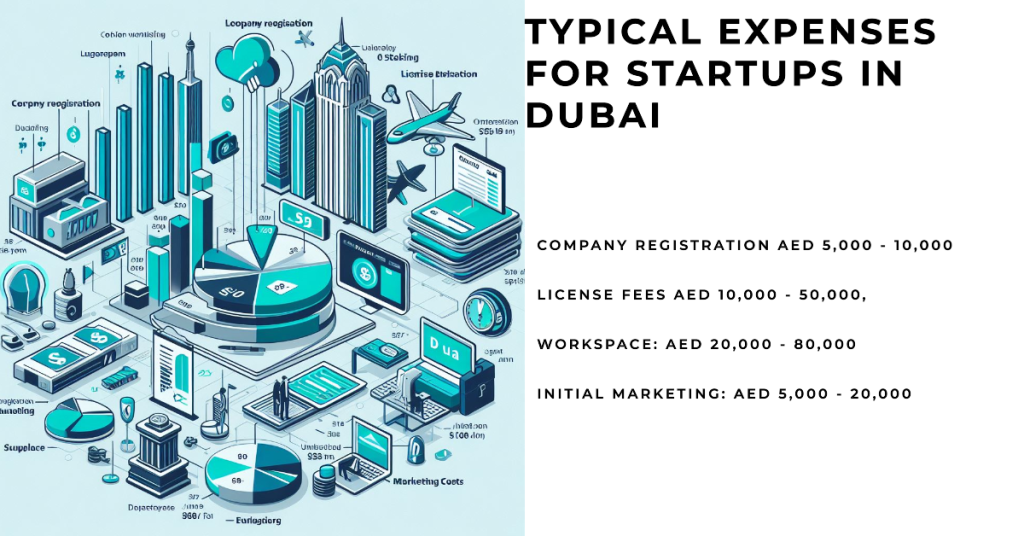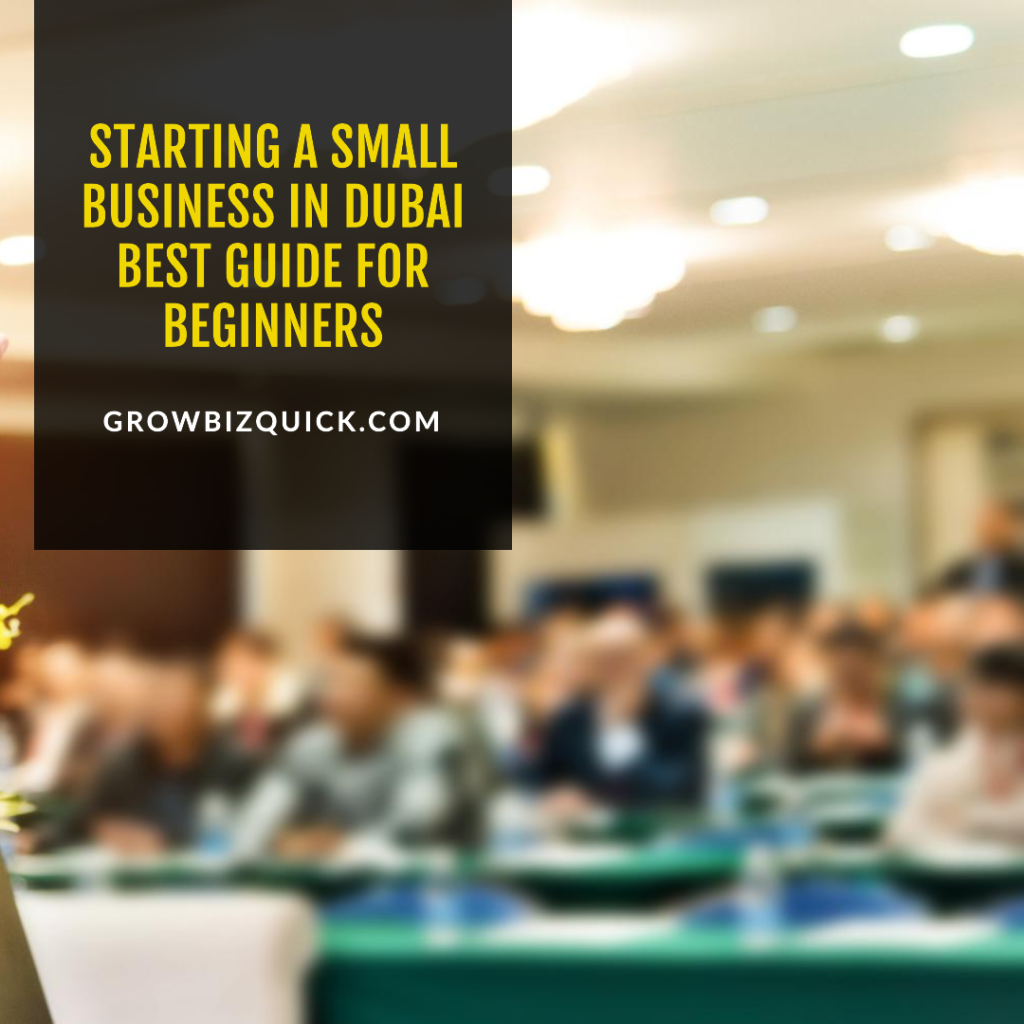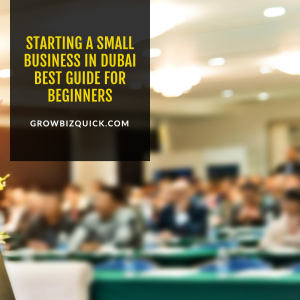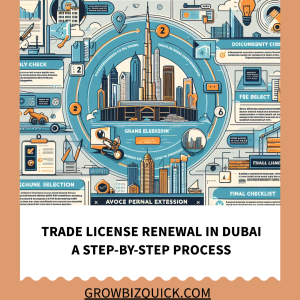Understanding Dubai’s Business Environment
The business environment in Dubai is known for its dynamism and rapid growth.
According to the World Bank’s Ease of Doing Business report 2020, the UAE ranks 16th worldwide, demonstrating the conducive nature of its business environment.
Notable for its robust economy, the city-state has a GDP of AED 407.2 billion, as revealed by the Dubai Statistics Centre in 2020.
This wealth is broadly distributed across various sectors, with trading, logistics, tourism, and real estate as pivotal contributors.
“Dubai’s business landscape is shaped around bettering the future and fostering global trade. It beckons to all aspiring entrepreneurs with its promises of success and prosperity.”
Besides the supportive government policies, its geographical position is an influential factor for doing business.
With Dubai being a major connection point between the East and the West, it offers unparalleled access to a vast consumer market.
| Sector | Contribution to GDP (%) |
|---|---|
| Trading | 28 |
| Logistics | 12 |
| Tourism | 11.5 |
| Real Estate | 13.6 |
This table distinctly shows the sectoral GDP contribution in Dubai. With such a varied economic structure, the city is ripe with opportunities for aspiring business owners across multiple domains.
The harmony between government initiatives and private sector dynamism creates an unmatched synergy in Dubai’s business ecosystem.
If you’re looking for a location to start your small business, Dubai offers you an array of possibilities that can lead to prosperity and success.
Navigating the Legalities: Understanding Dubai’s Business Laws
Embarking on your entrepreneurial journey in Dubai goes hand in hand with unraveling its manifold legal frameworks. Before setting up your dream venture, it’s crucial to engage with Dubai’s trade laws and regulations.
We encourage you to initiate the process by identifying and understanding the different legal entities available for business setup.
In Dubai, the options primarily comprise Sole Proprietorship, Partnership, Limited Liability Company (LLC), and Public or Private Shareholding.
Each has its own legal implications and suitability based on your business type, so choose wisely.
| Business Type | Legal Entity |
|---|---|
| Small Retail Shop | Sole Proprietorship |
| Consultancy Services | Partnership |
| Import/Export Trade | Limited Liability Company (LLC) |
| Large Manufacturing Unit | Public or Private Shareholding |
Once you’ve decided the appropriate legal entity, the next step is obtaining a business license. Dubai primarily offers four types of licenses:
- Commercial,
- Professional,
- Industrial,
- Tourism.

Referring to the competent authority, specifically the Department of Economic Development (DED), for accurate information about these licenses is critical.
Understanding legalities doesn’t stop at securing a license. Dubai has stringent laws regarding employee rights, rental contracts, and trade practices .
Familiarizing yourself with these aspects is as important as acing your business strategy.
In conclusion, navigating through the legalities to start a small business in Dubai may seem like a daunting task.
However, with thorough research and the right professional help, it’s an achievable milestone.
Remember, your journey is never solo; legal and business consultants are there to guide you through the labyrinth of local law. Together, you can translate your vision into a thriving venture.
Selecting the Perfect Location for Your Small Business
Identifying the ideal place for your startup is like finding the right puzzle piece, it not only needs to fit with your type of business but also needs to be a place where your target customers can access you easily.
Dubai is composed of several areas, each with its unique characteristics and demographics.
Based on research, choosing the perfect spot for your small business requires ample consideration. Here are some factors to mull over:
Type of business:
If you’re setting up a traditional storefront, locations like the high-traffic Jumeirah or downtown areas could be a good fit.
Alternatively, if your business is more service-oriented and doesn’t mandate customer footfall, locations in the outskirts or smaller commercial districts could serve the purpose.
Target customers:
Your perfect location should be easily accessible to your target demographic. Knowing where your customers live, work, and spend their leisure time can significantly guide this decision.
Competition:
Proximity to competitors can be a blessing or a curse, depending on the specifics of your business and industry.
Local laws and zoning:
Dubai has specific zoning laws governing where certain businesses can be established. Ensure to cross-check if your preferred location adheres to these regulations.
Here’s a simple comparison table data to help you choose between some of Dubai’s top locations for small businesses:
| Location | Best For | Average Price per sq.ft (AED) |
|---|---|---|
| Jumeirah | Retail Stores | 120 – 180 |
| Downtown Dubai | Luxury businesses, Boutiques | 170 – 260 |
| Dubai Investment Park (DIP) | Offices, Manufacturing | 50 – 75 |
Choosing the right location can be a determining factor in the success of your business.
Take the time required to understand the location dynamics within Dubai to ensure you’re making a decision that will give your small business the best chance of success.
Decoding the Requirements:
What You Need to Start a Small Business
Starting a small business in Dubai requires careful planning and meeting certain prerequisites.
As you embark on this entrepreneurial journey, you’ll need to consider several important aspects. Let’s decode these requirements for you.
In the initial stage, you must have a clear business plan.
This should outline your business concept, target audience, strategies to reach your potential customers, and how your offer stands out from the competition.
Next, evaluating the capital required is crucial.
This includes the costs of setting up the business, operational costs and enough reserve for unforeseen situations.
Refer to the table below for a breakdown of typical expenses for startups in Dubai.
| Type of Expense | Approximate Cost |
|---|---|
| Company registration | AED 5,000 – 10,000 |
| License fees | AED 10,000 – 50,000 |
| Workspace | AED 20,000 – 80,000 |
| Initial Marketing | AED 5,000 – 20,000 |
Once the financial aspects are covered, it’s time for the third crucial step – obtaining a business license.
Dubai offers different types of licenses depending on the nature of your business, for instance, commercial, professional, or industrial licenses.

Before you jump into the licensing process, you’ll want to identify the type of license your business needs. The Dubai government’s official website can offer some assistance with that.
It’s also a good idea to consult a local lawyer or a business consultancy to clear all your doubts.
| Type of License | Business Activities |
|---|---|
| Commercial License | Trading or buying and selling goods. If your business involves any kind of trading activity, you’ll likely need this license. |
| Professional License | Service-oriented businesses like consultants, teachers, and artisans. If you’re offering professional services, this is the license for you. |
| Industrial License | Any businesses involved in manufacturing or any type of industrial activity. If your business involves transforming raw materials into finished goods, this might be the license you need. |
After identifying your business licensing needs, you’ll want to start the application process.
This typically involves preparing all necessary documentation and submitting it to the Dubai Department of Economic Development.
Did you know that depending upon your business type and activity, the location can have legal implications for the validity of the business license?
The location of your business can determine whether you need to apply for a license under the jurisdiction of mainland Dubai or one of its many free zones.
Don’t forget to have a rental agreement in place for the office or storefront location you’ve selected for your business. It’s a requirement for the business license application!
Financial Consideration:
Budgeting Your Startup
Embarking on a new business venture in Dubai demands meticulous financial planning.
Your startup’s budget doesn’t solely revolve around initial capital; it includes projections for future expenses and revenue as well.
Forbes provides a detailed report into the importance of comprehensive financial planning for startups.
The purpose of the budget is twofold. Firstly, it provides an estimate of income and expenditure, giving you a snapshot of your financial health at any point in time.
Secondly, it serves as a financial guide, enabling you to make informed decisions about pricing, cost-cutting measures, hiring of staff, and potential for growth.
Initial costs encompass factors such as licensing fees, rent, renovations, equipment, initial staffing, inventory, and more.
When budgeting for your startup, it’s particularly crucial to look beyond just the initial spending and maintain an eye towards future expenses. Entrepreneur features some insightful tips on the subject.
| Expense Category | Average Cost estimation |
|---|---|
| Business License | AED 10,000 – AED 50,000 |
| Office Rent | AED 20,000 – AED 80,000 |
| Renovation and Maintenance | AED 20,000 – AED 40,000 |
| Staff Salary | AED 60,000 – AED 200,000 (annually) |
However, it’s essential to remember that these costs are merely estimates.
They can fluctuate based on the type of business, location, and market conditions.
Always research extensively and consult with financial experts before finalizing your budget.
Your business’s financial plan must also account for potential sources of income.
This includes revenues from sales, income from interest, investments, and other income streams relevant to your business model.
A detailed article from Inc might serve as an excellent resource in this context.
Once your small business gains traction, ensure you review and adjust your budget periodically.
This step not only allows you to manage your finances more effectively, but it also helps you identify patterns and adapt to changing circumstances quickly.
Choosing the Right Industry for Your Small Business
Choosing the right industry for your startup is one of the most pivotal decisions you can make.
It can influence everything from your customer base and revenue potential to your overall business trajectory.
Dubai’s diverse economy offers a myriad of opportunities for small business owners.
But how do you select the most advantageous industry for you? It’s essential to take into account your personal interests, relevant skills, and long-term business goals.
Look for industries that are stable, have growth potential and where there’s a market gap you can fill.
A good way to start researching industries is by examining market trends.
Websites like Statista can provide valuable insights into various sectors’ performance, growth rates, and future predictions.
| Industries | Growth Rate | Market Share |
|---|---|---|
| Dubai Chamber of Commerce | 3.1% | 14.2% |
| Retail | 4.2% | 11.8% |
| Tourism | 5.5% | 9.7% |
Also, it’s helpful to conduct a SWOT analysis (Strength, Weaknesses, Opportunities, and Threats) of each potential industry.
This exercise will give you a clearer picture of any challenges that may arise and how your business could possibly navigate them.
Finally, remember that choosing the right industry is about finding a balance – between your personal interests and the cold, hard facts of the market.
By thorough research and careful consideration, you can ensure you’re making an informed decision that sets your small business on the path to success in Dubai.
Building Your Team:
Hiring Considerations in Dubai
Assembling a proficient team is a cornerstone for any successful business venture.
In Dubai, the recruitment process might be a bit different from what you’re accustomed to, due to the emirate’s unique socio-cultural framework and labor laws.
Firstly, it’s beneficial to understand a little about Dubai’s labor laws. There’s a clear distinction between hiring local citizens, known as Emiratis, and expatriates.
This division creates different expectations about not only benefits and compensation but also working hours and holidays.
There’s an array of online and offline platforms to find potential hires in Dubai. Some of the popular ones are Naukrigulf, Bayt, and LinkedIn.
Also, consider hiring through recruitment agencies or headhunters, they can expedite the process and match you with qualified individuals.
Create an inclusive and diverse team by hiring people from varied backgrounds.
This not only boosts creativity and innovation but also expands your customer base being a reflection of Dubai’s multicultural society.
| Process | Description |
|---|---|
| Market Research | Analyze the market to understand what skills are in demand and what are common salaries for those roles in Dubai. |
| Hiring Process | Advertise your job requirements on the right platform, scrutinize applications, conduct interviews, and eventually hire. |
| Induction Process | Introduce the new hires to your policies and procedures. Give them an understanding of your company’s culture and values. |
| Performance Appraisal | Regularly evaluate the performance of your workforce. This will keep them motivated and help them improve their skills over time. |
Remember, the right set of people can drive your business to new heights.
Investing time and resources in building an outstanding team is absolutely worth it in the long run.
Growing Your Small Business:
Expansion Opportunities in Dubai
Congratulations on making it this far! So, you’ve successfully set up your small business, and now it’s time to think about growth.
Dubai offers a plethora of expansion opportunities, and understanding how to leverage these is crucial for sustained success.
Dubai’s commitment to economic diversification opens several avenues for small businesses to expand.
The government continually invests in various sectors, making Dubai an incredibly dynamic business environment.
For a detailed breakdown of Dubai’s strategic sector investment, check out Dubai’s official government portal.
If you’re seeking to diversify your business, sector expansion should be at the top of your strategy list.
This can be done by either offering new products or services within your existing industry, or by venturing into new industries.
| Expansion Strategy | Pros | Cons |
|---|---|---|
| Offering new products/services within your industry | Capitalizes on existing knowledge and customer base | Limited by industry growth |
| Venturing into new industries | Decouples your business growth from your current industry’s growth | Requires investment in knowledge and resources |
Location expansion is also an excellent strategy in Dubai, especially given the city’s vast economic free zones.
Expanding your physical presence through additional locations or franchises can significantly increase your reach.
More information on Dubai’s economic free zones can be found on the Dubai Economic Department’s website.
In conclusion, Dubai’s dynamic business environment, strategic sector investments, and vast economic free zones make it a fertile ground for small business growth and expansion.
Keep seizing these opportunities and watch your venture thrive!
Riding the Digital Wave:
Incorporating Technology into Your Business
Embracing digital solutions in your small business is no longer an option—it’s a requisite. It’s about stepping forward into the rising digital era and harnessing its potential.
Comprehending Dubai’s technology market could be the key to elevate your small business.
This segment will assist you in utilizing technology to progress your business in Dubai. So, let’s dive into the digital wave together!
In 2019, the UAE government introduced the ‘Digital Economy Strategy’, aiming for a paperless government by 2021.
This move signifies the rapid technology advancement in Dubai, providing various opportunities to small businesses. It is essential that you align your business strategy with this digital transformation.
You might start by ensuring your business has a solid online presence.
Almost 99% of UAE’s population are active internet users, making it a fertile ground for online businesses.
Utilize digital marketing tools and social media platforms for business visibility and customer engagement.
| Online Platform | Function |
|---|---|
| Facebook Business | Allows you to create a business page and paid promotions |
| Instagram Business | Provides you tools to create product catalogues and shoppable posts |
| Google Ads | Promotes your business on Google Search, YouTube, and other partner websites |
Additionally, consider implementing technology tools such as Customer Relationship Management (CRM) software and Point of Sale (POS) systems in your operational activities.
These technological integrations can optimize your business operations and provide valuable insights into your customers’ purchasing behaviors.
Lastly, ensure your business is protected against cyber threats. Cybersecurity is crucial with the rising digitalization.
Equip your business with data protection systems and provide necessary cybersecurity training to your team.
So, while you’re surfing the digital wave, remember to stay secure, stay innovative, and stay ahead!
Networking in Dubai:
Building Connections for Your Business
We can’t underestimate the power of a strong network in the world of business. This is especially true in Dubai, where relationships often precede business deals.
Nurturing a healthy business network can be the key to your small business success.
Start by attending Dubai Chamber of Commerce meetings and other local industry events. Such platforms allow you to meet and interact with like-minded entrepreneurs, potential customers, investors, and even mentors.
Check the chamber’s event calendar frequently and sign up to attend relevant gatherings.
Consider joining business networks like Business Network International (BNI) Dubai and Dubai’s Meetup groups.
These groups host regular networking events that can significantly boost your business visibility.
Online networking platforms, including LinkedIn, can also be valuable. Regularly share updates about your business, join industry-specific groups, and engage in conversations.
This builds your business’s online presence among other industry professionals and potential customers.
Finally, here is a simplified guide for effective networking:
| Steps | Description |
|---|---|
| Determining Your Networking Goals | Identify what you hope to gain from networking. This could be ideas, partnerships, or leads. |
| Research Events and Groups | Look for events and groups relevant to your business. Check platforms like Dubai Chamber of Commerce and Meet Up. |
| Prepare for Events | Before attending an event, familiarize yourself with the attendees. Also, prepare your “elevator pitch”. |
| Effective Follow-ups | After making connections, follow up with an appreciative email or LinkedIn request to sustain the relationship. |
Building a strong network isn’t an overnight job, but with consistent effort, your network will significantly contribute to your small business’s growth in Dubai’s competitive market.
Small But Mighty:
Competing in Dubai’s Competitive Market
So, you’re gearing up to take on the challenge, eager to make your mark in Dubai’s highly competitive business environment.
You’re about to throw your hat into the ring, a ring that is bursting with talented entrepreneurs and multi-national corporations. Don’t worry, we’ve got you covered.
Today, Dubai ranks as one of the top cities globally for entrepreneurs, thanks to its robust infrastructure, well-developed ecosystem, and government-backed initiatives to support startups.
To truly make your business stand out, you’ll need to adopt the “small but mighty” mindset.”
Understanding Your Competition
First things first, you need to understand your competitors. Who are they? What products or services do they offer?
And how do they deliver those to their customers?
You can conduct a SWOT analysis to identify strengths, weaknesses, opportunities, and threats of your competition.
Use this information to create a strategy to differentiate your business.
Differentiate, Differentiate, Differentiate
You must bring something unique to the table to stand out in Dubai’s business scenery.
Your unique selling proposition (USP)—the factor or consideration presented by a seller as the reason that one product or service is different from and better than that of the competition—can be your biggest asset.
Research shows that businesses with a strong USP tend to fare better than those without clear differentiation.
| Competitive Strategies | Details |
|---|---|
| Offer high-quality products | Committing to high standards of quality can set you apart from the competition. |
| Customer service excellence | Superior customer service can lead to loyal customers and positive reviews, enhancing your company’s reputation. |
| Innovation | Being an innovator in your field can put you ahead of the competition. |
Remember, starting a small business in Dubai can be challenging, but with the right strategies, continuous learning, and improvement, your small but mighty business can stand tall among competitors and achieve great growth and success in Dubai’s dynamic market.
Planning for the Future:
Exit Strategies and Succession Plans
Even though your business is still in the budding stages, it’s essential to begin thinking about exit strategies and succession plans.
This may seem like a far-off issue, but it’s the forward thinking that distinguishes a resilient business owner.
Contrary to popular belief, an exit strategy doesn’t necessarily mean you’re leaving your business; it merely involves devising a plan to keep your business flourishing even if you decide to step down or should unforeseeable circumstances arise. So, as a reminder, always keep your chess pieces primed for any move on the board.
Table 1. Common Exit Strategies for Small Businesses
| Exit Strategy | Description |
|---|---|
| Selling the Business | Selling your business to another company or interested buyer. This is often time-consuming, requiring valuation and legal processes. |
| IPO (Initial Public Offering) | One of the biggest paydays a business owner can have but is complex and can be quite demanding regarding regulatory requirements. |
| Passing on to Family | Transferring your business to a family member can be a smooth transition, but it’s important to consider family dynamics and their ability to effectively run the business. |
| Liquidation | Closing your business and selling all of its assets. This strategy often doesn’t result in a great return but might be used if there are no other viable options. |
Simultaneously, a succession plan is a strategy where you identify and develop new leaders who can replace old ones when they leave or retire.
It’s a cradle-to-grave strategy that ensures your business continues to operate smoothly.
Your exit strategy and succession plan should ideally be encoded in your business plan right from the get-go.
Remember, the future of your small business doesn’t chop and change with the wind;
It follows a clear, pre-determined path that you democratically set into motion.








